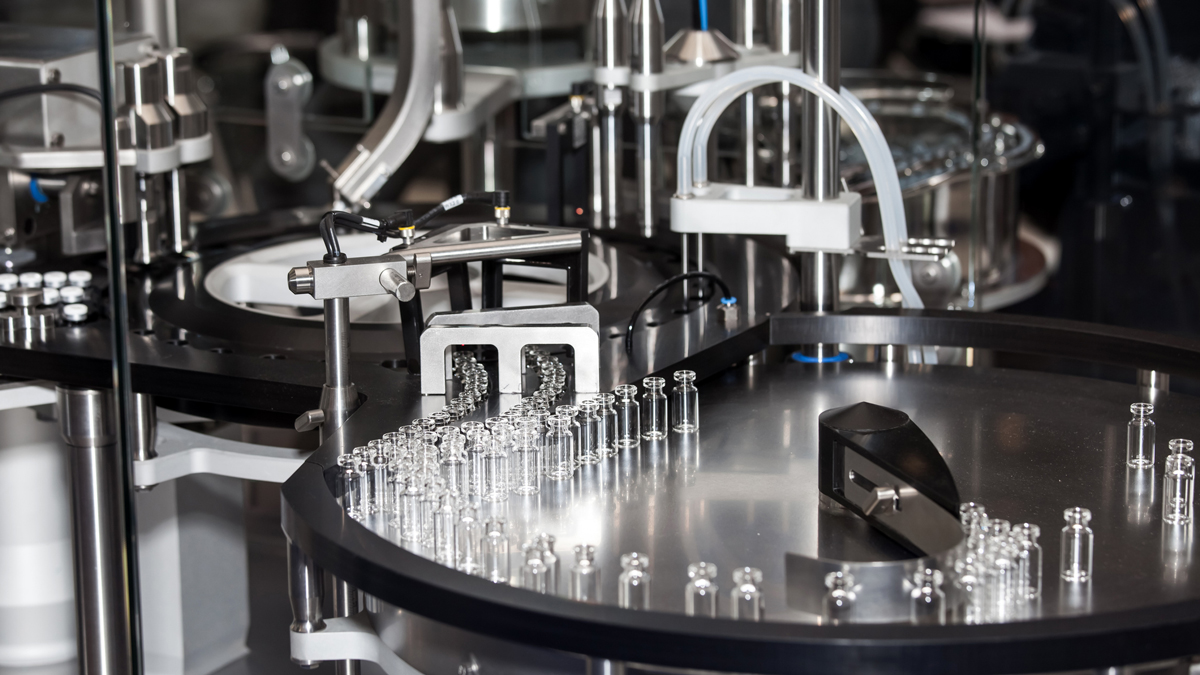Sustained healthcare systems need sustainable pharma business models

COVID-19 demonstrated the importance of robust supply chains and the dangers of an over reliance on overseas manufacturing. But can the Pharmaceutical Strategy for Europe help to redress the balance?
Only sustainable, robust supply chains and business models will allow innovation to flourish, secure access to medicines, and minimise the industry’s impact on the environment.
The Pharmaceutical Strategy for Europe, which came into effect in November 2020, is a “good first step” towards making this happen, said Richard Daniell, executive vice president and head of Europe Commercial at Teva.
Taking part in a fireside chat at the recent virtual Reuters Events: Pharma 2021 meeting, he explained how the COVID-19 pandemic had been a “wakeup call” for the industry, and spoke about the strategies that could help build the European healthcare systems of the future.
The impact of COVID-19 on pharma
It is obvious, said Daniell, that “predictable and sustainable access to quality medicines” has to sit at the heart of Europe’s health agenda. The pandemic brought the sector’s “unhealthy over reliance on overseas supply chains” into sharp focus.
“It was a real wakeup call and highlighted the critical importance of open borders in supplying medicines, and especially essential treatments,” he said, pointing out that two thirds of APIs are currently manufactured in Asia.
“However, the good news is that very few patients saw any shortages in their treatments, despite the disruptions to healthcare systems. This is testament to the entire sector working across government, health systems, and industry.”
Looking ahead, the “highly connected and interdependent” industry must adjust its policies to the new economic and technological realties, he said.
COVID-19 has made patients much more aware of the length and complexity of pharmaceutical supply chains, as well as how they impact on the environment.
“In the same way that we have heard discussion about food miles, we now see that consumers are interested in what we are calling ‘medicine miles’,” Daniell said.
A customer survey of 3,000 people who rely on regular medication across Europe found that while 66% had no idea where their medicines come from, 70% said they wanted to know more.
The majority, 85%, said they wanted their government to support manufacturing investments in Europe, so as to avoid over dependence on other regions.
“Nearly three quarters think the industry is important as we move out of the pandemic, because it can really ensure the stability and reliability of the medicines that are essential for them,” Daniell added.
“What was really interesting was that there was a real desire to see a sustainable, strong European manufacturing system… we heard they want healthcare systems to be more resilient, to be able to withstand future shocks or future pandemics.”
The results have informed Teva’s future strategy, in terms of ensuring it has a strong manufacturing network within Europe, said Daniell.
Creating a compelling framework for future innovation
The strategy does, in theory, provide a good framework for innovation, but we also need to recognise the barriers, said Daniell, explaining that the basic business model had to be sustainable.
“We certainly have a problem with national-level procurement policies that put almost no value on generic medicines … that approach needs to change. The rather inflexible, old-fashioned regulatory regime in Europe should be modernised in order to attract investment, and to improve agility and flexibility.”
Harnessing the power of digital thinking will also boost innovation, he went on. “Delivering real-time information in the form of an electronic patient information will be of great benefit. It's really crucial to have a greater focus on patient engagement by providing up to date, approved, good quality patient information, which is user friendly and understandable,” he said.
Using big data and artificial intelligence would give the manufacturing sector the ability to improve accuracy and eliminate errors, while also increasing the transparency of supply chains.
“In addition, digital device and drug systems that help personalise [treatments] and predict patient needs are fantastic innovations that are contemplated in the pharma strategy. But we've got to have new thinking from the regulatory systems and payers to ensure that we can develop them, get them reimbursed, and get them … into the patient's hands.
“Unfortunately, in Europe today, we are far from having an ecosystem that properly recognises this type of innovation.”
Improving access - the role for pharma and other stakeholders
Daniell said that the sustainability of healthcare systems and pharmaceutical strategies is crucial in ensuring access to medicines, which is a key pillar of the Pharmaceutical Strategy for Europe.
“For the off-patent industry, the combination of unsustainable procurement policies, and this old fashioned, slow regulatory system are challenging future access to generic and biosimilar medicines.”
Access is dependent on securing a robust medicines supply chain, meaning companies need to invest in European manufacturing facilities.
However, “poorly thought-out” national healthcare procurement policies constitute a “race to the bottom” and do not recognise the investment that is required to ensure improved access “for many years to come”.
“We need governments and industry to work together. For a long time, we have called for constant, high-level dialogue to build a framework that supports the production and development of medicines here in Europe.
“The pharma strategy is a great first step in recognising the challenges that we face so we can work towards solutions across healthcare systems, patient associations, medical professionals and the industry,” concluded Daniell.
About the author

Amanda Barrell is a freelance health and medical education journalist, editor and copywriter. She has worked on projects for pharma, charities and agencies, and has written extensively for patients, HCPs and the public.












